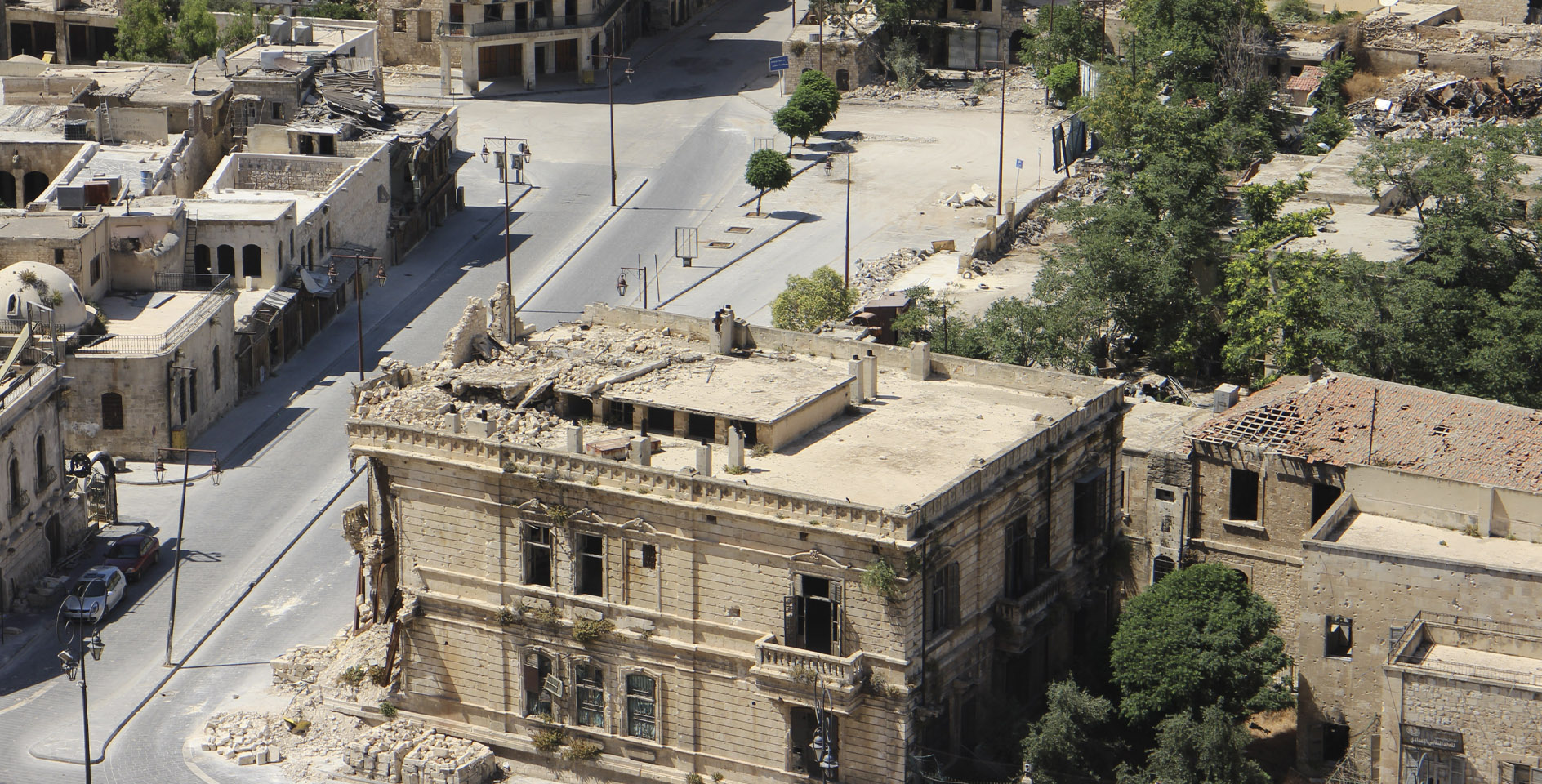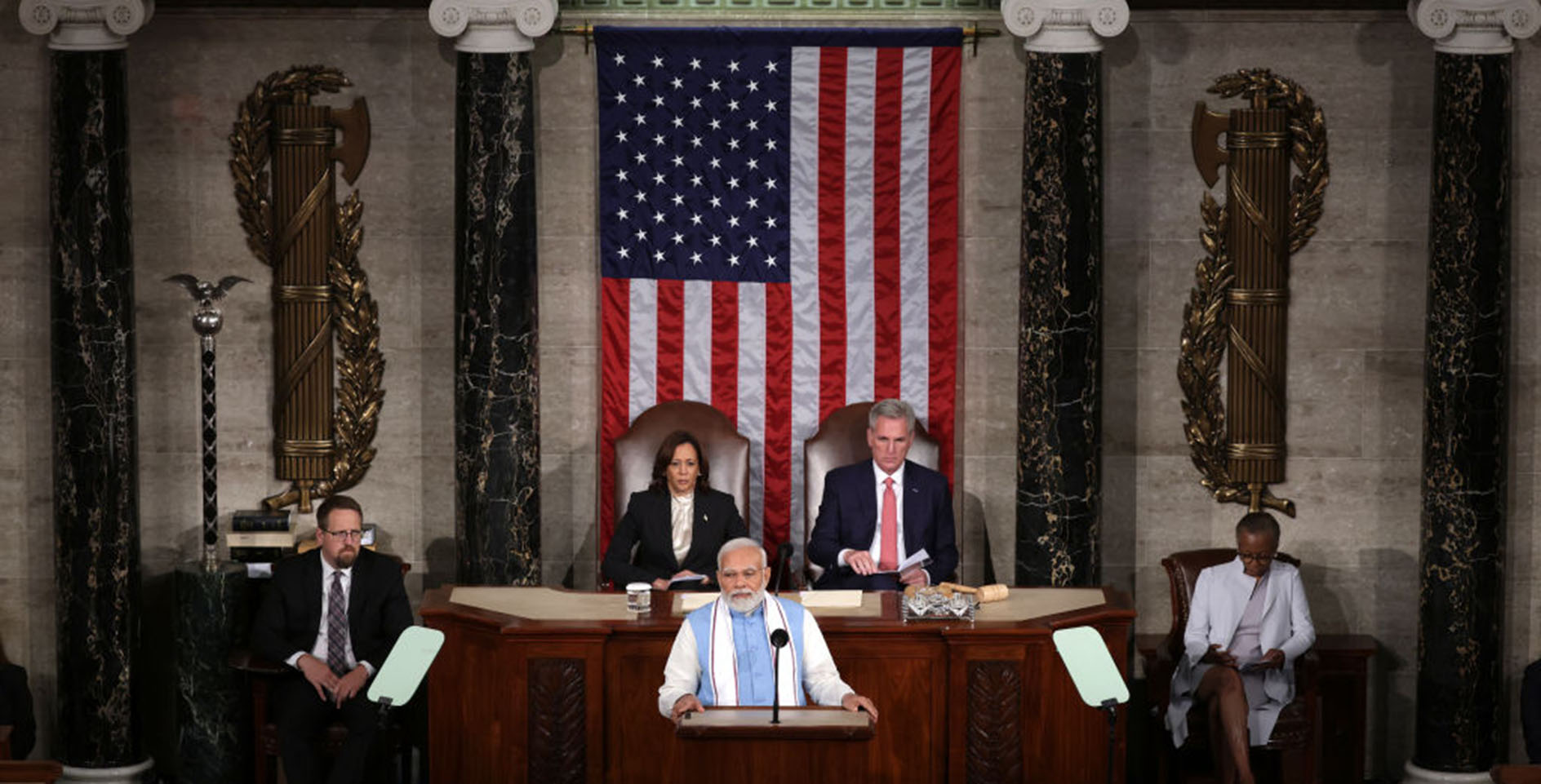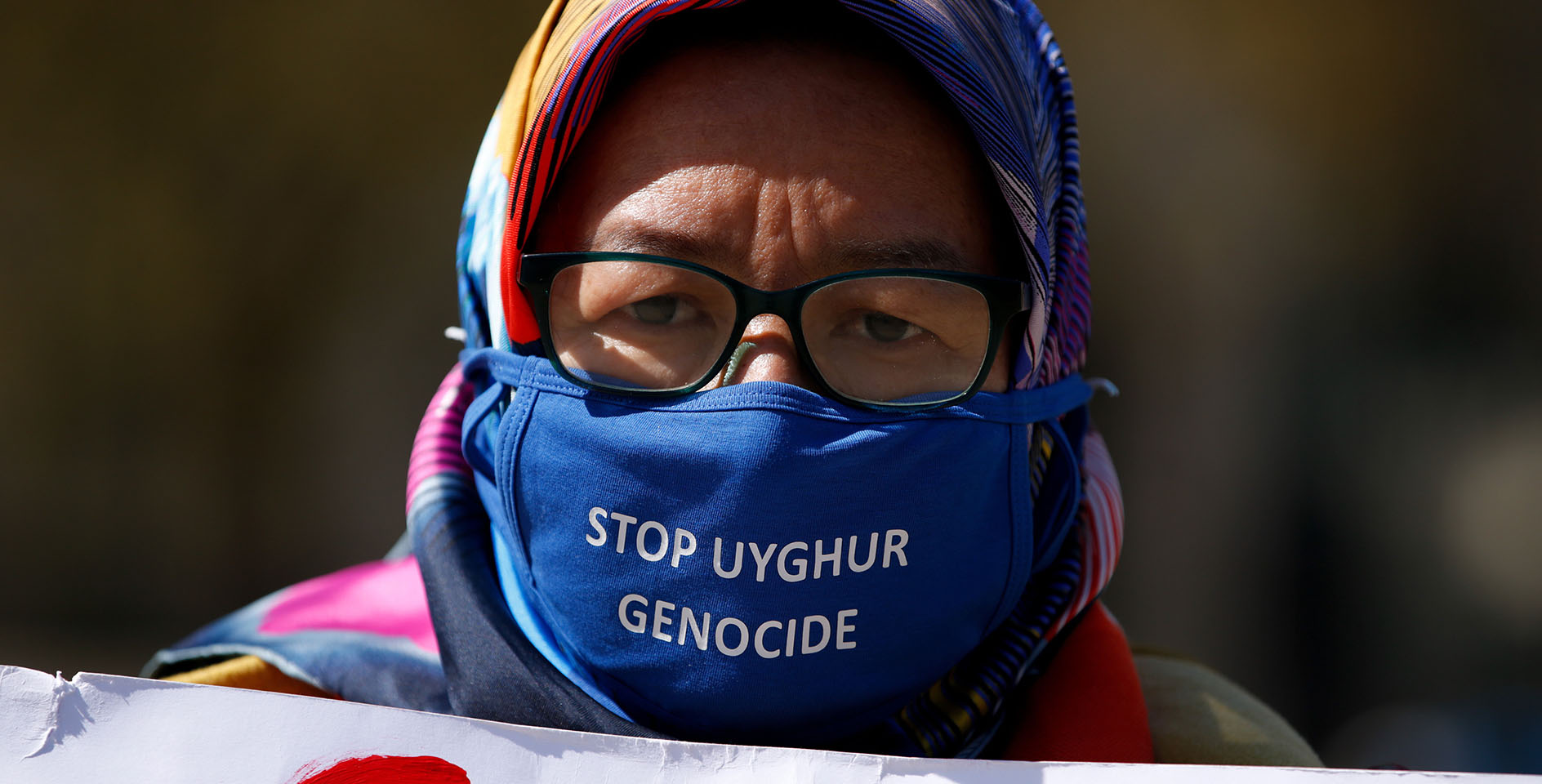Since the first mission movements of the Early Church, Assyrian (Syriac) churches have never failed to maintain a confessional Christian presence in or near their original lands. If the current crisis facing northeastern Syria worsens, ancient Christian communities dating back to the Book of Acts might soon be deserted. The last remnants of this people group could be driven out of their homeland and their churches destroyed.
In the last few months, things have grown increasingly dangerous for those who remain in northeastern Syria. Following the abrupt removal of U.S. troops in October 2019, Turkish forces immediately resumed attacks in the region using soldiers, warplanes, and drone strikes. Though their primary targets are allegedly Kurdish forces, the reality is that Turkey has been attacking indiscriminately and recklessly leading to the deaths or serious injury of many Christians and civilians, including children. To add to the imminent danger, the temporary leave taken by U.S. forces allowed for the reemergence of ISIS in the areas where Syriac churches and their families remain.
Assyrian Christians in history and around the world
Assyrian Christians trace their ethnic roots back to the days of Abraham, and their Christian faith roots to the Early Church. As the gospel moved East during the first century, small Christian communities emerged quickly in ancient Assyria. As a result, for nearly two millennia now, Assyrian Christianity has maintained an indigenous presence in Iraq, Iran, Turkey, and Syria.
Assyrian Christians not only have some of the deepest roots in the history of the Church, they also worship in one of the most sacred languages. The congregations of the Assyrians are often called “Syriac” churches because they speak, pray, sing, and read in a modern form of ancient Syriac. Syriac is a subset of Aramaic, which was the language spoken by Jesus and many of the earliest Jewish-background believers.
As the Imperial Church became more formalized in the late Roman Empire, the Assyrians were often on the outside looking in. Syriac churches lacked representation in both Rome and Constantinople, which meant they did not play a significant role in either Western or Eastern Christendom.
Throughout the centuries that followed and up until now, Assyrian Christians have endured sustained periods of persecution and attempts of genocide, most recently in the last century from the Turks. As a result, they have much fewer members than in centuries past, even with the exponential growth in the world’s population.
The oldest form of Syriac Christianity, the Assyrian Church of the East, is today very small, with best estimates being between 300,000–400,000 members globally. Several other groups consider themselves Syriac Christians, including the Chaldeans, Jacobites, and even some Protestant/Evangelical strains. All combined, best estimates are that the adherents of this ancient form of confessional Christianity number somewhere around 4 million.
Since the beginning of the civil war in 2011, thousands of Assyrian Christians have fled northeastern Syria into surrounding countries. A similar exodus took place in Iraq a decade before, following the U.S withdrawal from that region. Some have even emigrated to Europe and the U.S., adding to the growing Assyrian Christian diaspora around the world.
The Assyrian Christians must be seen, and their stories should be heard and retold.
The Western influence of these churches is steadily growing. In Chicago and its surrounding areas, for example, there are nearly 100,000 Assyrian Christians and several Syriac churches.
The migration of many Assyrians into the West does not reduce the immense historical and spiritual value of their original lands and traditions. Even those who no longer live in northeastern Syria still feel a sense of unity with the ancient body of Christ simply in knowing a presence remains in the places where their faith began.
Happening right now
Even after the U.S. reversed its decision to withdraw from the region and ultimately redeployed troops into Syria, Christian sources on the ground dispute claims that an actual cease-fire has yet to happen.
Among the cities in the most imminent danger are two bastions of ancient Assyrian Christianity: Qamishli and Tel Tamr (Tal Tamer/Til Temir).
In Qamishli, the larger of the two cities, the Christian community immediately released a statement of concern following the October reports of the U.S. withdrawal of troops. Their fears quickly became a reality. According to Mindy Belz of World, who continually provides comprehensive reporting in the area, “Qamishli and this region have been roiled with ISIS sleeper cells and Turkish-backed militias since October’s U.S. pullout from key border points, which precipitated an invasion by Turkish President Recep Tayyip Erdogan.”
In November 2019, a series of attacks by ISIS were perpetrated in Qamishli in which Christians were targeted. Belz was across the street from one of the locations where a car bomb exploded, killing seven people and wounding dozens more. Belz reflects on her own brush with terror:
“In America we absorb this news from a studied distance. In Qamishli, I didn’t have that option. I watched as shopkeepers moved toward the flames. They jumped atop fire trucks, carried out dead and wounded, and later joined workers who spent hours upon hours sweeping glass and debris from the streets. The next day much of the street reopened for business, and men sat brazenly on the sidewalk.” [full article]
The number of Christians in Qamishli had already seen a dramatic decrease from 2011 to 2018, from around 25,000 to around 12,000. Following these tragic events in recent weeks, one can only surmise that many more Assyrian Christians, even among the most resilient of them, will leave Qamishli. Soon there could be no more Syriac churches remaining.
In the smaller Tel Tamr, the situation could be even more bleak. Tel Tamr and its surrounding villages was home to 20,000 Assyrian Christians just five years ago. Now, only around 1,200 remain. The imminent danger from conflicts involving Turkish forces, the Syrian National Army (SNA), and the threat of ISIS could easily cause this city with its pivotal Syriac community to become completely deserted. In November, the Kurdish-led Syrian Democratic Forces (SDF) in Syria released a video of ISIS members claiming they had “cut the road to Til Temir and we are marching towards the town.”
According to Sylvain Mercadier of the Iraqi/Kurdish media outlet Rudaw, “If Tel Tamr falls . . . the ancient Christian presence in North-Eastern Syria will come to an end.”
This is a story Assyrian Christians have seen before.
In 2015, ISIS invaded the nearby Christian community of Tel Tal and destroyed many of its churches. They also kidnapped more than 220 people and held them for outrageous ransom amounts. Since that time, 90% of Assyrian Christians have fled, and less than a thousand remain. Where there were churches in 30 villages in the region before that time, now only one church still holds regular services.
All of this leads many Assyrian Christians to ask: Will there be an ancient Christian presence—either in flesh and blood, brick and mortar, or stone and mud left in Syria in the next decade?
What can be done?
A consistent theme emerges in every article, report, and interview regarding the Assyrians in their homeland: They must receive help from the international community, including further support from the U.S. and our allies.
Thankfully, there is overwhelming bi-partisan support for maintaining a reasonable, yet strong presence in northeastern Syria. This is, in part, to help protect our allies such as the Kurds and to continue to eradicate terror groups. There is also the goal of protecting the Syrian people themselves and helping them maintain their homes and identities in their own lands.
Assyrian families and churches simply cannot survive these conflicts and threats of terrorism alone. They need our government and church leaders to pay attention and renew our support.
This is where we who are their brothers and sisters in Christ and part of the global Christian community must take notice.
- The Assyrian Christians must be seen, and their stories should be heard and retold.
- As our understanding of their situation deepens, our intercession for them in our prayer lives must also deepen.
- There are several great organizations and leaders working on the frontlines of this crisis. Many are working directly with Syriac Christians and other vulnerable people who are made in God’s image, and our support can make a difference right now.
- We must speak up in support of the immense value of their lives, homes, and freedom—including their religious freedom. As Americans, we have voices to raise to elected officials and others who affect international policies and diplomacy. The bottom line is that stability and wholeness will not be achieved in northeastern Syria without our continued involvement.
There is little to no time left. If the few Christian families and churches remaining in northeastern Syria are not protected, this may well be the last few months for ancient Assyrian Christian communities in their homeland.
Sources:
- Christoph Baumer, The Church of the East: An Illustrated History of Assyrian Christianity (Bloomsbury, 2016).
- Sylvain Mercadier, “Tel Tamr: the last Assyrian frontline,” Rudaw (12/1/19): https://www.rudaw.net/english/middleeast/syria/01122019
- Jayson Casper, “Syrian Christians Brave Insecurity to Stay Behind and Help,” Christianity Today (10/18/19): https://www.christianitytoday.com/news/2019/october/syrian-christians-open-doors-preemptive-love-aid-relief.html
- Casper, “Syrian Christians to US: ‘Don’t Abandon Us Now’,” Christianity Today (10/8/19) : https://www.christianitytoday.com/news/2019/october/syrian-christians-kurds-us-withdrawal-turkey.html
- Belz, Mindy, “In the house of mourning: Syrians want ‘our pain to reach your government’,” World (11/21/19): https://world.wng.org/2019/11/in_the_house_of_mourning
- Belz, “Attacks in Syria target Christians, civilians,” World (11/12/19): https://world.wng.org/2019/11/attacks_in_syria_target_christians_civilians
- Belz, “Witness to atrocities: Refugees attest to indiscriminate killings by Turkish fighters as the Trump administration reverses course, sends troops back into Syria,” World (11/11/19): https://world.wng.org/2019/11/witness_to_atrocities
- Belz, “A cruel withdrawal: The departure of U.S. forces from Syria allows Turkish forces to target civilians with atrocities—even during a U.S.-brokered cease-fire,” World (11/9/19): https://world.wng.org/2019/10/a_cruel_withdrawal
- Makini Brice et.al, “U.S. Republicans join Democrats to blast Syria withdrawal)” Reuters (10/7/19): https://www.reuters.com/article/us-syria-security-turkey-usa-congress/us-republicans-join-democrats-to-blast-trumps-syria-withdrawal-idUSKBN1WM1ZO
- Marlo Safi, “Closure of Syrian Schools: Another Bleak Sign for Christians in Syria,” National Review (9/25/18): https://www.nationalreview.com/2018/09/assyrian-christians-face-persecution-kurdish-nationalists/
- Ben Hubbard, “ ‘There Are No Girls Left: Syria’s Christian Villages Hollowed Out by ISIS,” New York Times (8/15/18): https://www.nytimes.com/2018/08/15/world/middleeast/syria-isis-assyrian-christians.html
- Robert Herguth, “Chicago immigrant: Assyrians suffered ‘so much’ but ‘still have hope’,” Chicago Sun-Times (3/7/18): https://chicago.suntimes.com/2018/3/7/18401757/chicago-immigrant-assyrians-suffered-so-much-but-still-have-hope
- Karwan Faidhi Dri, “Turkish shelling kills at least 10 civilians, mostly children, in NW Syria: local sources,” Rudaw (12/2/19): https://www.rudaw.net/english/middleeast/syria/02122019
- Carl Anderson, “A mass Christian exodus from the Middle East would be a catastrophe,” New York Post (11/15/19): https://nypost.com/2019/11/15/a-mass-christian-exodus-from-the-middle-east-would-be-a-catastrophe/










